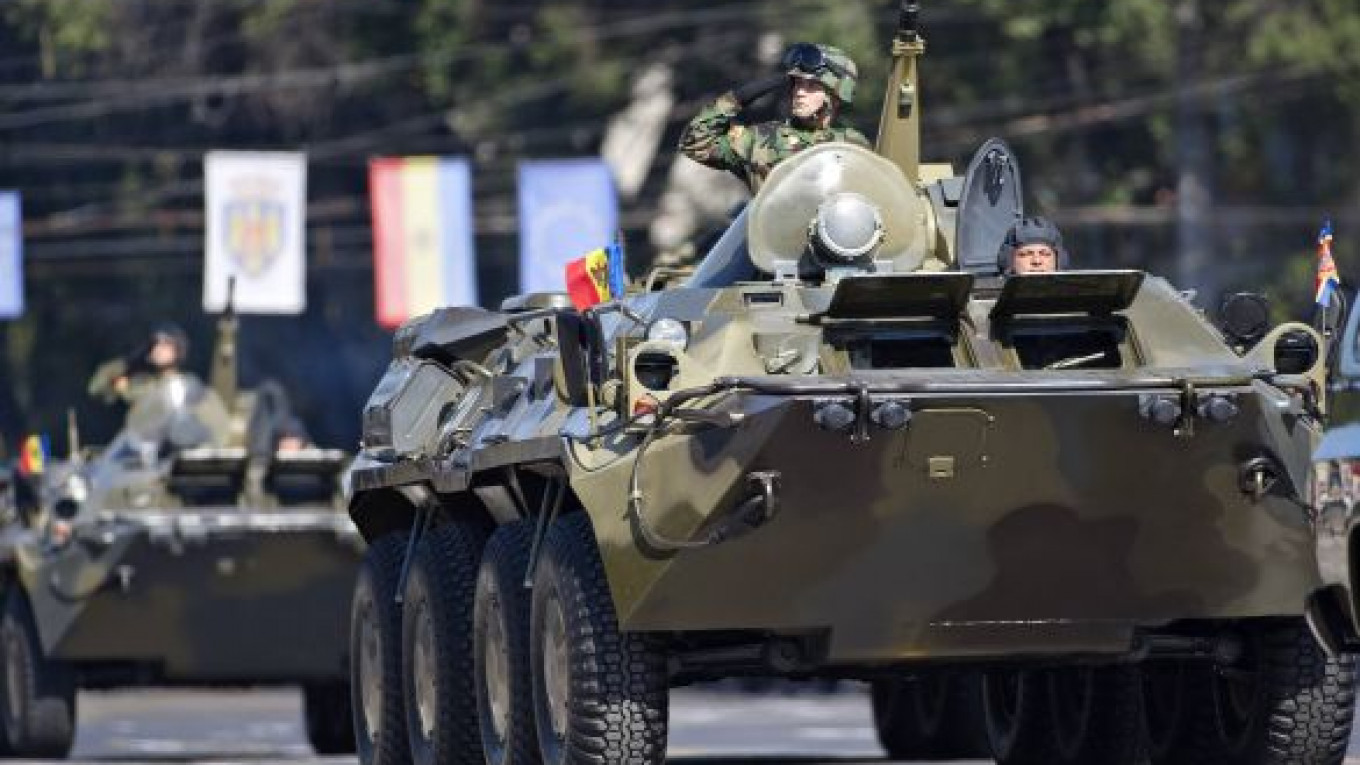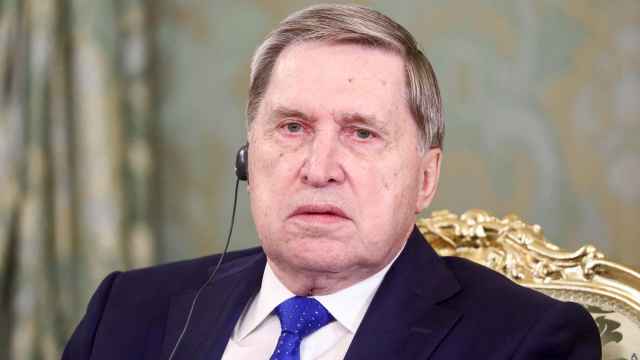CHISINAU, Moldova — Moldovan Prime Minister Vlad Filat expressed hope that his meeting with the head of the rebel Transdnestr region could lead to negotiations resuming on a settlement to end one of Europe's most intractable frozen conflicts.
Filat, who heads a West-leaning coalition, held a rare meeting on Friday in Germany with Igor Smirnov, leader of breakaway Transdnestr, under the auspices of the Organization for Security and Cooperation in Europe.
There was no sign of real progress after Germany's meeting, which the European Union facilitated by lifting a visa ban on Smirnov.
But Filat, who has to contend with political rivals for power in Chisinau, put a brave face on the outcome, saying Saturday that he hoped a meeting later this month in Moscow could lead to a resumption of official negotiations on a settlement.
"The conversation with Smirnov was sincere, though this does not mean that we had the same opinion on steps that must be undertaken for the integration of Moldova," Filat told journalists. "But I consider that dialogue is the basis for progress in settling the conflict."
The Sept. 22 "consultative meeting" in Moscow will bring together representatives of Russia, the United States, Ukraine, the EU and the OSCE, plus officials from Moldova and Transdnestr.
A strip of land running down the eastern rim of Moldova, Transdnestr has been outside the control of the central government in Chisinau since fighting a brief war after the collapse of Soviet rule in 1992.
No official negotiations on settling the conflict have taken place since 2006, when Smirnov broke off talks in protest at a new customs regime that he labeled an "economic blockade" aimed at strangling the breakaway region.
Filat said all participants at the talks in Germany had been in favor of official negotiations resuming. It was not clear whether he was including Smirnov in the count.
He said he had discussed practical issues such as restoring landline telephone links between Moldova and Transdnestr, cross-border freight and improvements on people's movements to and from the mostly Russian-speaking rebel territory, where Smirnov has been in power for 20 years.
Wedged between Romania and Ukraine, Moldova is one of Europe's poorest countries with an average salary of $240 a month. Poor job prospects have driven many young Moldovans to go abroad for work, depriving the nation of skilled labor.
Moldovan authorities and EU officials say Transdnestr, home to about 550,000 people, has become a "black hole" in Europe for arms, drugs and human trafficking.
Bringing the problem to the world's attention was a "priority task" for the Moldovan leadership, Filat said.
Filat himself is under pressure at home as his West-leaning coalition tries to find a way out of a political impasse that has deprived the country of a full-time president for nearly two years.
"The process of reintegrating our country depends above all on the success of the process of our integration with the European Union," Filat said earlier last week on the sidelines of an economic forum in Poland.
Moldova is negotiating a visa-free regime with the EU — an important goal for a country with nearly 1 million citizens living and working mostly illegally in the bloc — and hopes to conclude an agreement "soon," Filat said.
One of his main rivals, center-left politician Marian Lupu, who is acting president, appeared unimpressed by Friday's meeting in Germany.
He said the visit gave hopes of a resumption of international talks on a Transdnestr settlement, but at the same time Smirnov would be able to use it to boost his political position inside the territory.
A presidential election is to be held in Transdnestr on Dec. 11, though it is not clear whether Smirnov will run for a fifth term.
A Message from The Moscow Times:
Dear readers,
We are facing unprecedented challenges. Russia's Prosecutor General's Office has designated The Moscow Times as an "undesirable" organization, criminalizing our work and putting our staff at risk of prosecution. This follows our earlier unjust labeling as a "foreign agent."
These actions are direct attempts to silence independent journalism in Russia. The authorities claim our work "discredits the decisions of the Russian leadership." We see things differently: we strive to provide accurate, unbiased reporting on Russia.
We, the journalists of The Moscow Times, refuse to be silenced. But to continue our work, we need your help.
Your support, no matter how small, makes a world of difference. If you can, please support us monthly starting from just $2. It's quick to set up, and every contribution makes a significant impact.
By supporting The Moscow Times, you're defending open, independent journalism in the face of repression. Thank you for standing with us.
Remind me later.






